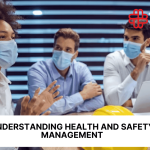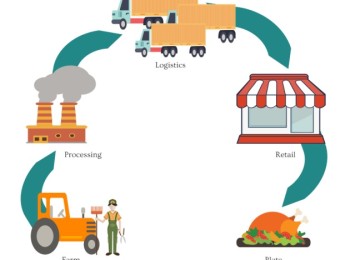Within the aviation industry, there is a heavy focus on maintaining the highest health and safety standards. Various laws and regulations are dedicated to ensuring the safety of all aircraft during each stage of their service. Cabin safety inspections are regularly conducted to ensure all aircraft comply with these regulations.
Cabin safety inspections are a vital step in the flying process, as they ensure the entire aircraft is fit for purpose and can safely provide its service. These inspections are carried out by cabin safety inspectors alongside auditors and risk analysts. To be efficient at inspections, an individual must be capable of paying close attention to detail and be attentive and knowledgeable about legal standards.
Cabin safety inspectors must also be competent in the entire risk auditing process. This process contains several stages that all contribute to audit success. Inspectors should be well versed in each stage and its expectations and confident in writing and providing reports based on the audit findings. These reports should analyse the information gathered and recommend the most effective corrective actions.
Upon completion of this course, participants will be able to:
- Understand the importance of cabin safety inspectors within aviation.
- Acknowledge the consequences of poorly conducting cabin safety inspections.
- Review the relevant laws and regulations surrounding cabin safety.
- Explore the roles and responsibilities of various HSE positions within the aviation industry.
- Assess the various types of cabin inspections, their advantages, and disadvantages.
- Assess the concepts, principles, and industry standards of cabin safety inspections.
- Evaluate the stages of conducting an inspection and process auditing.
- Effectively conduct each stage of the audit process – planning, fieldwork, analysis, and corrective action.
This course is designed for anyone in the aviation industry responsible for health and safety, particularly within the aircraft. It would be most beneficial for:
- HSE Officers
- Risk Managers
- Risk Analysts
- Auditors
- Inspecting Officers
- Compliance Managers
- SAFA Inspectors
This course uses a variety of adult learning styles to aid full understanding and comprehension. Participants will review real-world examples of cabin safety audits to highlight key cabin information inspection methods and identify any non-compliance areas.
Participants will be granted ample opportunities to fully develop their knowledge and skills related to the course content through various methods, including presentations, group discussions, demonstrations, and individual activities. Through their practical activities, the participants will also be able to receive constructive feedback from the instructors and their peers to aid in future development.
Day 5 of each course is reserved for a Q&A session, which may occur off-site. For 10-day courses, this also applies to day 10
Section 1: Fundamentals of Cabin Safety Inspections
- Explaining why cabin safety inspections are necessary within aviation.
- Describing what features are being inspected and the ideal outcome.
- Recognising the consequences of conducting inadequate safety inspections and the potential detriment to the organisation.
- Assessing the roles and responsibilities of various health and safety positions – HSE officer, cabin safety inspector, and risk analyst.
Section 2: Laws, Regulations and Standards
- Identifying regional legislation and regulations that influence the cabin safety inspection process.
- Standards of practise detailed in the UK CAA and European Cabin Safety Legislation and how this relates to cabin crew training and procedures.
- Merging legal requirements with organisational standards.
Section 3: The Audit Process
- The various stages of the audit process and their purpose – planning, fieldwork, post-audit analysis and corrective action.
- Creating plans detailing the purpose of the audit, employee interviews and drafting an extensive checklist of features to investigate.
- Conducting the audit using various methods, ensuring complete thoroughness and attention to detail.
- Building a report containing the analysed data from the audit and offering recommendations for corrective actions.
Section 4: Identifying Non-compliance
- Documenting all instances of non-compliance appropriately.
- Constructing the necessary reports and providing access to the correct individuals.
- Exploring methods to improve features and make them regulation-compliant.
- Accommodating for temporary non-compliance through extensive preventative and corrective actions.
Section 5: Pre-flight Assessments
- The importance of detailed health and safety procedures throughout the flying process, beginning at boarding.
- Offering pre-flight briefings to guarantee full understanding of the expectations of the flight.
- Conducting a sequence of cabin announcements regarding aircraft health and safety for customers – showcasing emergency exits, lifejacket and oxygen mask locations and applications.
Upon successful completion of this training course, delegates will be awarded a Holistique Training Certificate of Completion. For those who attend and complete the online training course, a Holistique Training e-Certificate will be provided.
Holistique Training Certificates are accredited by the British Assessment Council (BAC) and The CPD Certification Service (CPD), and are certified under ISO 9001, ISO 21001, and ISO 29993 standards.
CPD credits for this course are granted by our Certificates and will be reflected on the Holistique Training Certificate of Completion. In accordance with the standards of The CPD Certification Service, one CPD credit is awarded per hour of course attendance. A maximum of 50 CPD credits can be claimed for any single course we currently offer.
- Course Code IND18-107
- Course Format Classroom, Online,
- Duration 5 days














